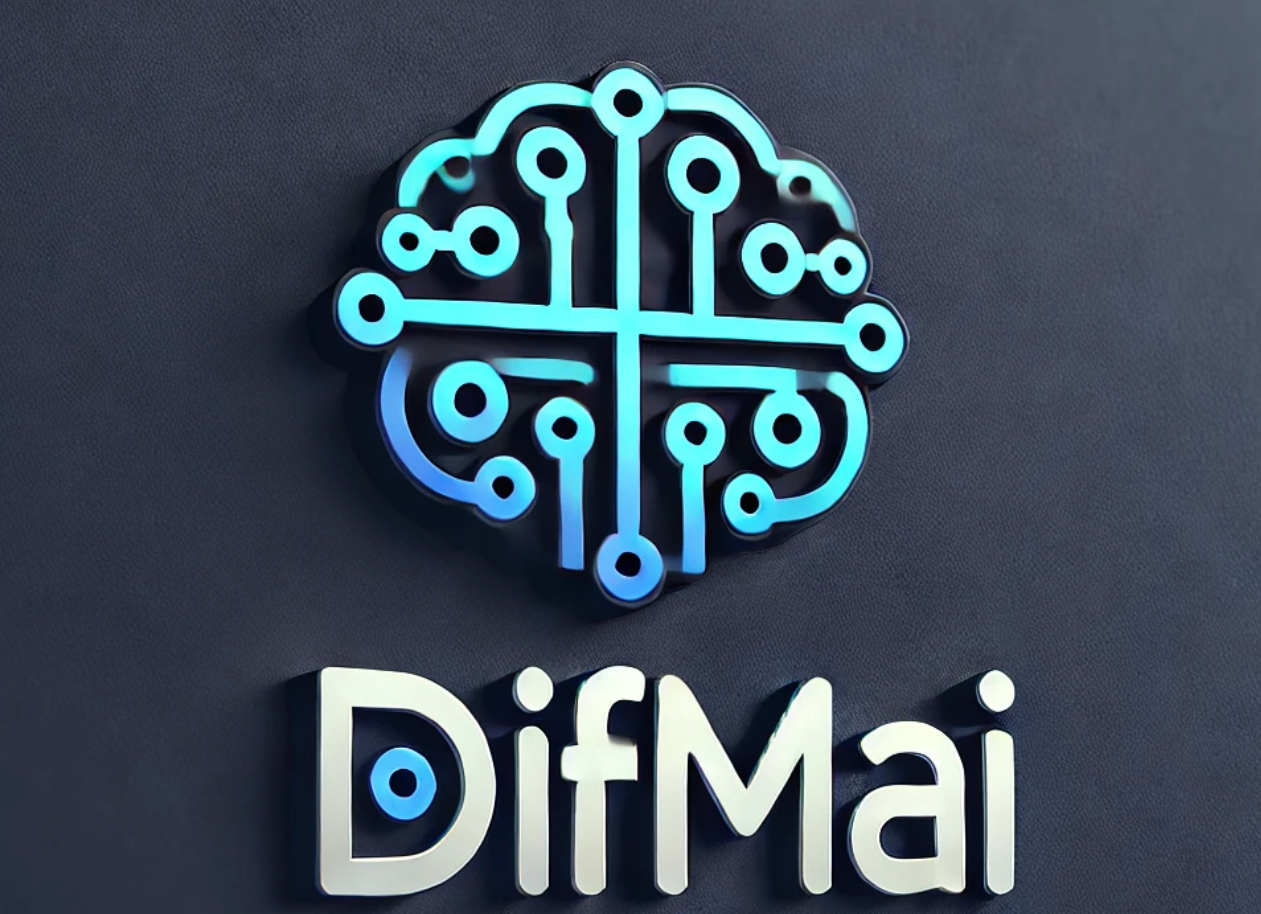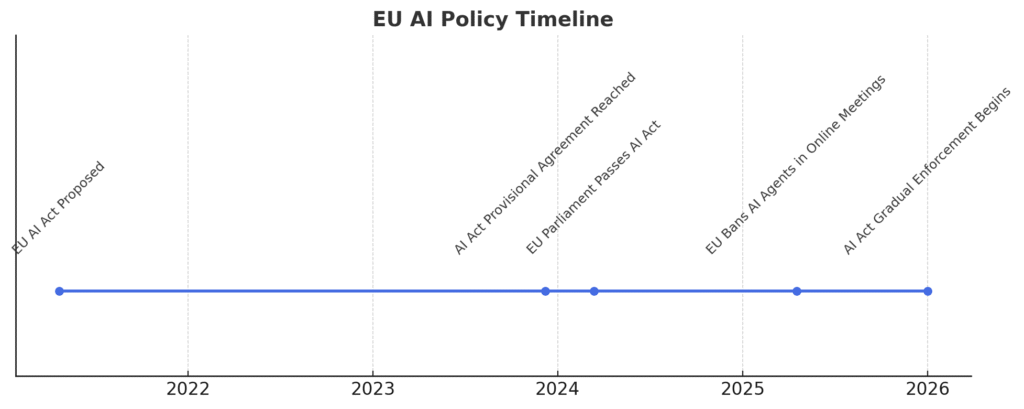TL;DR:
The European Commission has officially barred AI-powered virtual assistants—known as AI agents—from attending online meetings. This decision, though seemingly minor, signals a growing unease within regulatory bodies about the autonomy and influence of emerging artificial intelligence systems. As AI agents evolve to handle multi-step tasks and simulate human presence, Europe’s cautious stance could have widespread implications across industries and public institutions.
AI Agents: Beyond Simple Chatbots
For years, AI technology was synonymous with chatbots—text-based tools like ChatGPT that generate content or answer questions on demand. However, the AI landscape has rapidly shifted toward more advanced, autonomous systems known as “AI agents.”
These agents don’t just respond—they act. They can log into meetings, take notes, follow up with emails, and manage workflows, effectively simulating human participation. This leap in functionality has raised both eyebrows and regulatory concerns.
As Pieter Haeck from POLITICO reports, the European Commission has now set a clear boundary: “No AI Agents are allowed” in its internal online meetings. This new policy was quietly enforced during a recent call with digital policy support representatives, reflecting the Commission’s effort to draw ethical and operational lines in a fast-moving AI era.
Why This Matters: Policy vs. Innovation
This move by Brussels is significant for several reasons:
Precedent for AI Regulation: Although AI agents aren’t yet covered by specific EU laws, the decision pre-empts upcoming enforcement of the EU AI Act, which categorizes AI applications based on risk. Agents, operating with a degree of autonomy, could easily fall under high-risk classifications.
Impact on Workplace AI Adoption: Businesses increasingly experiment with AI agents to handle repetitive or administrative tasks. The Commission’s stance might prompt companies—especially those interacting with EU bodies—to rethink deployment in formal contexts.
Algorithmic Management Concerns: The technology also intersects with ongoing EU debates on algorithmic management, a concept where workers are directed by automated systems. Allowing AI agents into decision-making spaces could blur the lines of accountability and consent.
Who’s Building These Agents?
Leading AI firms have been aggressively developing agent-like platforms:
OpenAI launched Operator, a research project demonstrating multi-step, browser-based task execution.
Microsoft Copilot is integrating agent-like functionalities that extend beyond single queries.
Mistral, a French AI startup, has created agent frameworks for customized applications.
Despite their innovation, these companies may soon need to navigate a web of restrictions in Europe, especially if AI agents are deemed incompatible with institutional transparency or data security requirements.
Autonomy vs. Authority
The core of the Commission’s discomfort likely lies in the nature of autonomy. AI agents can attend, act, and potentially influence digital spaces without direct human oversight. Even if their functions are limited to note-taking or summarizing, the presence of a non-human participant in official government meetings could create conflicts around data protection, decision-making transparency, and record authenticity.
This sentiment echoes larger global discussions. In the U.S., lawmakers have proposed bills to mandate AI disclosure in political and workplace settings. The United Nations has also begun addressing autonomous AI systems in its digital governance forums.
What Comes Next?
While the EU hasn’t disclosed full details behind the policy, its symbolic power is clear: governments are no longer spectators in the AI revolution. They are becoming active regulators, drawing lines between acceptable automation and perceived overreach.
A broader legislative push may follow. The AI Act, set to be implemented in stages through 2026, already places stringent rules on AI used in critical infrastructure, law enforcement, and workplace monitoring. AI agents could soon join that list if their capabilities continue to expand unchecked.
Final Thoughts
The EU’s decision to ban AI agents from meetings might appear technical, but it’s a bold marker in the global conversation on digital autonomy and human governance. As these tools become more embedded in everyday workflows, a key question looms: should machines be allowed to “represent” us in professional spaces—or are some roles fundamentally human?
As AI agents evolve from tools to collaborators, institutions worldwide will need to carefully weigh innovation against oversight. Europe, once again, is signaling it prefers to act sooner rather than later.
Source:
POLITICO – EU bans the bots: Commission bars ‘AI agents’ from joining online meetings
Related


